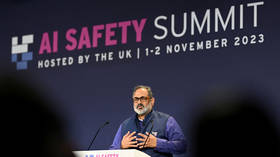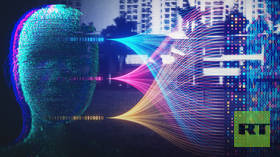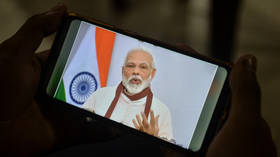India will not ‘demonize’ AI – minister

India will use artificial intelligence for “real life uses” and not “demonize” the technology, the minister of state for IT, Rajeev Chandrasekhar, said on Wednesday.
Speaking at the Global Technology Summit in New Delhi on Wednesday, Chandrasekhar said that India is “very committed” to AI.
“The prime minister [Narendra Modi] is absolutely a believer that technology can transform the lives of people, make governments deliver more, deliver faster, and deliver better,” he said, adding that this vision will lead to AI playing a major role in “healthcare, agriculture, education and skilling, security, and inclusion through translation” in the years ahead.
Chandrasekhar noted that India’s position is not to “overly obsess” over AI by looking at it only through the prism of safety and trust, despite the potential for “harm and criminality” through the technology. The minister stressed the need to build “easily understandable” guardrails of safety, trust, and accountability to regulate AI.
India has been waging a war on “deepfake content” generated by AI after a doctored video of popular Indian actress Rashmika Mandanna went viral on social media. Following this, New Delhi said it would enforce more regulatory measures.
In a report on AI regulation released on Wednesday, the Observer Research Foundation, India’s premier think tank, noted that efforts to govern and regulate AI are still “in a nascent stage” despite the “growing concerns” over the gap in the growing use of the technology and the lack of regulations.
The report said that while India is yet to develop a unified national AI governance mechanism, several initiatives and guidelines have been established, including the National Strategy for AI of 2018 and other roadmap documents developed by the government think tank NITI Aayog.
“India has a unique opportunity to craft and nurture its AI ecosystem, whether by developing novel policy approaches or adopting and adapting elements from other regulatory frameworks,” the report noted.
This idea was expressed by Chandrasekhar, who added that the government’s focus is to use AI to create an impact on communities, rather than compete with tech giants such as Elon Musk’s xAI or Sam Altman’s OpenAI. While OpenAI is known for its language model, ChatGPT, Tesla CEO Elon Musk earlier this year unveiled an artificial intelligence chatbot called Grok, which is seen as a competitor to ChatGPT.
“Our goal is not to compete with Sam Altman or Elon Musk or win the next Nobel Prize, but to transform the lives of people with use cases. AI will be used to build capabilities in real-life use cases,” Chandrasekhar said at the event.
New Delhi has been advocating for AI’s role in education and entrepreneurship. Prime Minister Narendra Modi first acknowledged the advancement of the technology in 2021 when he launched the ‘AI for All’ initiative, with the aim of training 1 million Indians in AI within a year.
To make AI accessible to every Indian, the government is developing ‘Bhashini’, an AI language translation system that seeks to break down the barriers between the languages of India, where several hundred are spoken, and 22 are recognized as official by the constitution.
Where India Meets Russia – We are now on WhatsApp! Follow and share RT India in English and in Hindi














